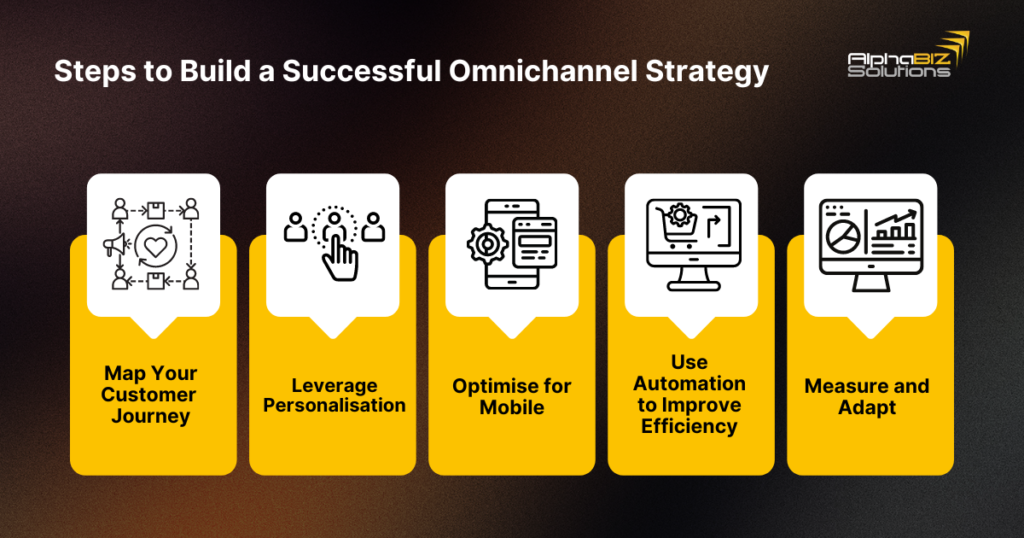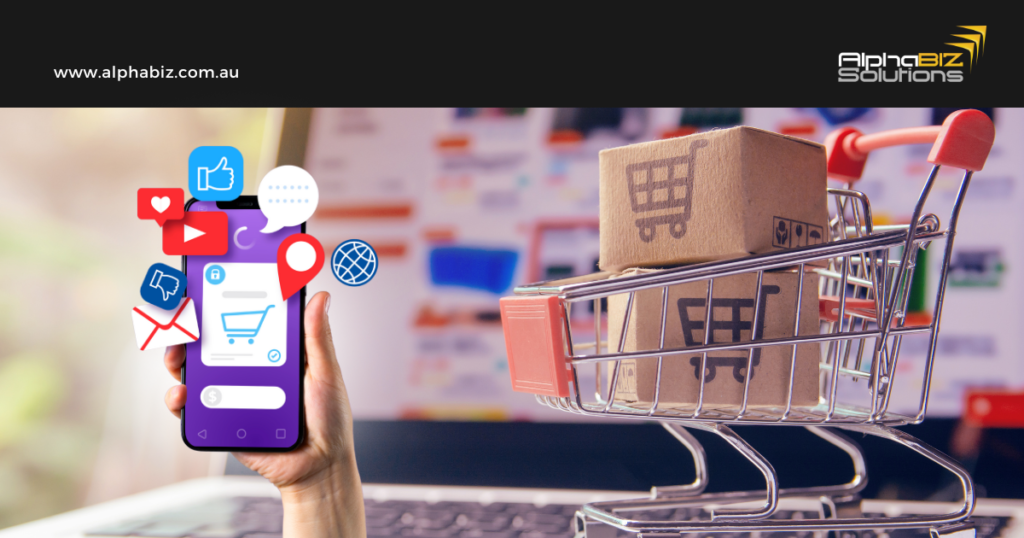In today’s retail landscape, customer expectations have evolved dramatically. Shoppers are no longer satisfied with just a good product or competitive price—they expect a seamless, personalised experience across all touchpoints. Whether they browse your website, visit a physical store, or interact on social media, they want consistency, convenience, and relevance. The solution? A well-executed omnichannel strategy, supported by the power of ERP integration, can help you keep up with these modern shopper expectations and drive significant growth.
In this article, we’ll explore what an omnichannel strategy is, why it matters, and how integrating it with an ERP system like MYOB Acumatica (formerly MYOB Advanced) can transform your business by improving customer satisfaction and boosting sales.
What Is an Omnichannel Strategy?
An omnichannel strategy is a customer-centric approach that ensures your brand delivers a seamless experience across multiple platforms, including online stores, physical locations, social media, and mobile apps. Unlike multichannel retail, where different channels often operate in silos, omnichannel retail unifies these touchpoints. The result? A cohesive brand experience where the customer journey flows smoothly, regardless of where or how the interaction occurs.
For example, a customer may start by researching a product on your website, check reviews on social media, add the product to their cart on their mobile phone, and finally complete the purchase in-store. Throughout this process, they expect consistency and personalisation, making it vital to have all systems integrated and data easily accessible.
Why Omnichannel Matters More Than Ever
The shift towards omnichannel retail is more than just a trend—it’s a necessity in the modern retail world. Consider this:
- Nearly 90% of consumers want an omnichannel experience when shopping, meaning businesses need to be present wherever their customers are.
- 46% of all ecommerce sales are expected to come from multichannel sources by 2023, up from 40.4% in 2019.
The move towards omnichannel retail has been accelerated by changing consumer behaviour, particularly after the COVID-19 pandemic. Shoppers now use an average of six different touchpoints during their journey to purchase, up from just two a decade ago. If your business isn’t offering a consistent experience across these touchpoints, you risk losing out to competitors who do.
The Role of ERP Integration in Omnichannel Success

The complexity of an omnichannel strategy lies in managing multiple platforms, inventory systems, customer data, and marketing channels. This is where an ERP system like MYOB Acumatica comes into play. ERP (Enterprise Resource Planning) solutions help streamline and centralise your business operations, making it easier to manage the entire omnichannel ecosystem.
Here are some ways ERP integration can supercharge your omnichannel strategy:
1. Unified Customer Data Across All Channels
With ERP integration, you have a single source of truth for all customer interactions. Whether a customer purchases online, in-store, or through a third-party marketplace, all their data is centralised within the ERP system. This enables you to personalise their experience at every touchpoint and maintain consistent communication, such as personalised offers and marketing messages. In fact, 79% of consumers are more likely to engage with personalised offers , highlighting the importance of data-driven marketing.
2. Real-Time Inventory and Order Management
An omnichannel strategy requires synchronised inventory across all platforms. With an ERP system like MYOB Acumatica, you can track stock levels in real time across your online store, physical locations, and third-party platforms like Amazon or eBay. This ensures you never overpromise on stock or miss out on potential sales due to stockouts. Additionally, the ERP system automates order management, reducing errors and speeding up fulfilment.
3. Enhanced Customer Support and Experience
Providing a seamless customer experience requires more than just delivering products—it’s about consistent support across channels. With ERP integration, your customer service team has access to complete customer history, helping them resolve issues more effectively.
Whether customers reach out via email, phone, or social media, they expect quick, personalised responses. Having an integrated system ensures that no matter how the customer contacts you, they receive consistent and efficient service.
4. Streamlined Operations and Automation
An omnichannel strategy can introduce complexity, especially when managing multiple sales and marketing channels. Automation, enabled by ERP, simplifies these processes.
Whether it’s automating inventory updates, processing orders, or sending personalised marketing messages, ERP integration allows your team to focus on high-value tasks like customer engagement, while the system handles repetitive activities.
BOPIS (Buy Online, Pick Up In-Store), which grew by 54% during the pandemic, is an excellent example of how automation can enhance customer convenience.
Seamless Integration with Ecommerce Platforms: The Need for ERP Connectors

To make the most of an omnichannel strategy, your ERP must work seamlessly with your ecommerce platforms like Shopify and WooCommerce. This is where an ERP connector, such as AlphaLink, becomes essential. AlphaLink acts as a bridge between your ERP system and your ecommerce platforms, enabling smooth data flow and ensuring all your systems are perfectly aligned.
By using AlphaLink, you can:
- Sync inventory in real time between your online store and ERP, avoiding stock discrepancies and ensuring a unified view of available products.
- Automate order processing, eliminating the need for manual data entry and reducing errors.
- Consolidate customer data from all touchpoints, ensuring consistent communication and personalised experiences across channels.
- Expand to new marketplaces like Amazon or eBay with ease, as AlphaLink seamlessly integrates multiple platforms into your ERP system.
For businesses looking to streamline operations and deliver a truly omnichannel experience, ERP connectors like AlphaLink are a game-changer. They enable smooth integration between your ecommerce platforms and ERP system, ensuring you have the agility and visibility needed to meet the demands of modern shoppers.
Steps to Build a Successful Omnichannel Strategy

1. Map Your Customer Journey
Understanding how your customers interact with your brand is essential. Identify the key touchpoints across their journey and ensure you deliver a consistent, high-quality experience. Use data from your ERP system to track these interactions and continuously improve the journey.
2. Leverage Personalisation
Use the customer data collected through ERP integration to deliver personalised shopping experiences. Tailored recommendations, targeted offers, and personalised emails can significantly boost engagement. 66% of Gen Z shoppers use social media to research products, so personalisation across these platforms is crucial.
3. Optimise for Mobile
With mobile commerce growing rapidly, ensure your ecommerce platform is mobile-friendly. Use ERP data to track customer preferences and optimise the mobile experience, from navigation to checkout. 73% of shoppers are more likely to buy in-store after discovering a product on social media, which makes mobile optimisation critical.
4. Use Automation to Improve Efficiency
Automation is key to managing the complexity of an omnichannel strategy. Automate inventory updates, customer notifications, and marketing campaigns through your ERP system. This not only improves efficiency but also reduces the risk of human error, ensuring your omnichannel strategy runs smoothly.
5. Measure and Adapt
Continuously track the performance of your omnichannel efforts using the analytics capabilities of your ERP system. Customer behaviour, sales trends, and inventory levels should be monitored regularly to identify areas for improvement. Stay agile and be ready to adapt to changing consumer preferences and emerging technologies.
Meeting Modern Shopper Expectations with ERP-Driven Omnichannel Strategies

To meet today’s modern shopper expectations, businesses need to embrace an omnichannel approach that unifies all customer interactions. The backbone of this strategy is a robust ERP system like MYOB Acumatica. By integrating your ecommerce, in-store, and marketing channels with a powerful ERP solution, you can create a seamless shopping experience that keeps customers satisfied and coming back for more.
And for a smooth and efficient integration with your ecommerce platforms like Shopify and WooCommerce, consider using AlphaLink, an ERP connector that ensures all your systems work together seamlessly.
Ready to elevate your omnichannel strategy?
Book a demo with AlphaBiz Solutions and discover how seamless ERP integration can transform your business. We’ll show you how to streamline operations, improve efficiency, and create a unified experience that boosts sales and keeps your customers coming back across every channel. Take the first step towards a smarter, more connected business!






